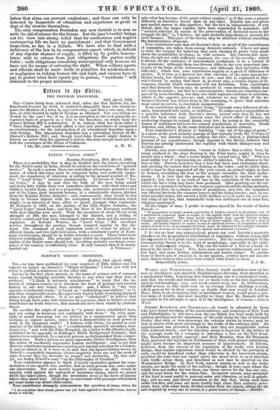NATIVE " LOCA_L CORPS."
Bombay Presidency, 20th March, 1860.
There is a probability that it may be decided that the future recruiting for the Native army in India, should be solely on the conditions of "general service." In such a system there are undoubted advantages. But the ele- ments of which this army must be composed being now perfectly under- stolid, the expediency of retaining or adding to the present number of Na- tive "Local Corps " deserves consideration. In favour of these "Lo- cal Corps," it may be said that the bulk of the men being raised and doing duty within their own immediate districts, with their wives and children around them, and to a proportion, also, permission granted to live out of the Lines, their interests become, to a considerable degree, distinct from the Regular Native Infantry ; and, consequently, they would be less likely to become tainted with the corrupting spirit of disaffection which might, in an interval of time, affect or spread amongst other regiments. At Holapore in 1857, on the mutiny of the 27th Native Infantry, the "Local Corps" stood firm ; and thus the lives of the European residents with their families were saved. With the exception of about 60 out of its strength of 500, the men belonged to the district, and a feeling of rivalry existed and had been encouraged between them and the mutinous regiment. At Sawunt Warree, its "Local Corps " did excellent service, throughout the mutiny, though tempted equally by the dis- loyal. The command of such regiments must of course be placed in efficient hands, and two light field-guns, with a subaltern's party of Euro- pean artillerymen, should be in future attached to each. These latter to be relieved periodically. The principle upon which the organization and dis- cipline of the Native army should rest, involving probably our future occu- pancy of the country, is sufficiently clear. It only remains that it be firmly


























 Previous page
Previous page